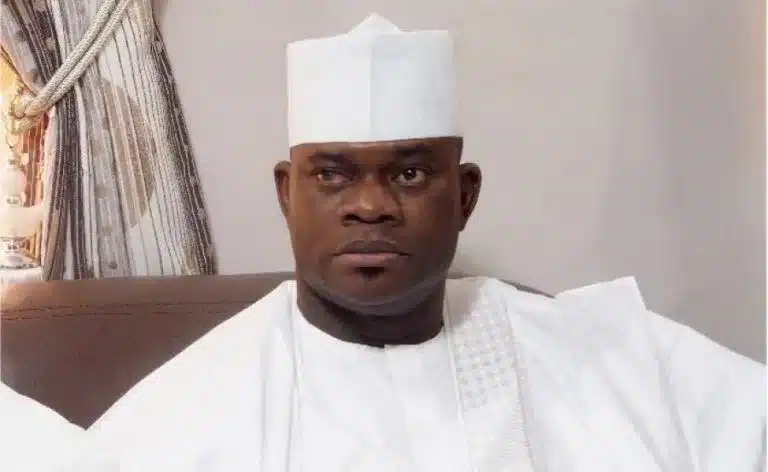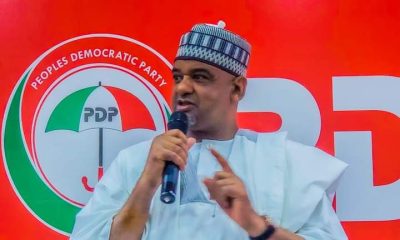Nigeria News
Why I Didn’t Appear In Court — Yahaya Bello Opens Up

The embattled immediate past Governor of Kogi State, Yahaya Bello, has revealed that he was ready to appear before the Federal High Court in Abuja and respond to the 19-count charge lodged against him by the Economic and Financial Crimes Commission, EFCC.
Despite Bello’s absence during his arraignment, he briefed a team of lawyers who represented him in court on Tuesday.
During the court session, Adeola Adedipe, SAN, part of his legal team, stated that his client would have presented himself for the proceedings, but he was concerned about the possibility of arrest.
“The defendant wants to come to court but he is afraid that there is an order of arrest hanging on his head,” Adedipe, SAN, submitted.
As a result, he requested the court to annul the ex parte arrest warrant previously issued against the former governor.
According to Adedipe, SAN, his client had not been served the charge in accordance with legal requirements when the arrest order was issued.
He pointed out that during Tuesday’s resumed proceedings, the court authorized substituted service of the charge to be delivered to the defendant through his lawyer.
“As at the time the warrant was issued, the order for substituted service had not been made. That order was just made this morning.
“A warrant of arrest should not be hanging on his neck when we leave this court,” counsel to the defendant added.
Moreover, the ex-governor asserted that the EFCC is an unauthorized body, stating that the Federal Government failed to consult all 36 states before passing the EFCC Act through the National Assembly.
He contended that, according to section 12 of the 1999 Constitution, as amended, the Act needed to be ratified by the various Houses of Assembly of states before it could take effect.
“This is a very serious matter that borders on the constitution and the tenets of federalism. It has to be resolved because as it stands, the EFCC is an illegal organization,” Bello’s lawyer added.
However, EFCC’s lawyer, Kemi Pinheiro, SAN, pressed the court to reject the application, stating that the arrest warrant should remain valid until the defendant is present for his trial.
The EFCC’s lawyer said, “The defendant cannot stay in hiding and be filing numerous applications. He cannot ask for the arrest order to be vacated until and when the defendant is present in court for his arraignment. He cannot be heard on that applied application.
“The main issue should be ascertaining the whereabouts of the defendant. All these applications he is filing are nothing but dilatory tactics intended to delay his arraignment and frustrate the proceedings.
“If he wants the order of arrest to be discharged, let him come here and make the application.
“Our position is that the defendant should be denied the right of being heard, until he is physically present before this court.”
The EFCC’s lawyer argued that, according to section 396 of the ACJA, 2015, the court cannot effectively assume jurisdiction to decide any application or objection until the defendant is arraigned.
The anti-graft agency stated that it would not execute the arrest warrant if the defendant’s counsel undertakes to ensure his presence on the next adjourned date. The EFCC’s lawyer expressed willingness to apply for the warrant to be discharged in such a scenario.
Additionally, EFCC emphasized that the charge before the court pertains to an individual accused of laundering public funds and purchasing properties both locally and abroad.












